Blog
GREAT HERBS TO GROW IN YOUR GARDEN THIS SUMMER
Nothing quite beats the sensation of cooking with home-grown herbs that we have grown in our very own garden. They can help transform the look of your garden in addition to adding a plethora of taste to a wide range of different meals, making herbs an essential part of our gardens.
Before we explore the vast type of herbs you can plant and grow, we will investigate two methods which will help to give you the best results.
- Well drained soil – This will give your herbs the best chance of growing and developing to its full potential. If drainage is questionable, it is worth considering raised beds or planting your herbs in pots.
- Sunlight – High levels of sunlight is exceptionally important for obtaining good levels of herb flavour. This means it is imperative that herbs are planted in the best lit areas of your garden.
TYPES OF HERBS TO GROW IN YOUR GARDEN:
BASIL:
An ingredient which is used in a range of many classic Mediterranean dishes and summer salads, making it the perfect herb for the next few months. Its exotic smell and refreshing and crisp taste, helps to transform the flavour of a dish.
Basil works great on salads, many pasta dishes and can also be a great topping on a pizza, helping to bring out the flavours of the sauce.
How to grow: It is important to remember that basil cannot withstand cold weather and frost, meaning that it can only be grown outdoors during the summer season. If wanting to grow basil during the winter period, it must be grown indoors.
Basil prospers when it receives as much sunlight as possible making greenhouses an ideal place to grow the herb for long periods.
MINT:
Mint is a herb which is often used to flavour salads and sauces, with mint sauce being a primitive example. The leaves can also be dried or used fresh to create herbal tea, as well as being used in herbal remedies.
Mint is an exceptionally refreshing herb, making it perfect for the warm summer weather. Add to your salad to bring it to life!
How to grow: To grow sufficiently, ensure that it receives a moderate level of direct sunlight. There is also the added bonus that mint is not susceptible to frost damage, making it a great herb for the cooler months too.
CORIANDER:
Coriander is a herb which due to its versatility is used a lot in Asian cuisine. Dishes which you may find coriander in are curries, Thai meals and Chinese dishes.
The seeds and leaves have distinct flavours – the seeds have a lemon-flavoured taste and can be ground down and used as a spice. The leaves, a little more bitter, are often chopped up and used as a garnish. As well as its culinary uses, coriander has many health benefits and is used all around the world in herbal remedies.
How to grow: In order to grow coriander partial shade is preferable, as shade help prevents premature setting of the seeds.
ROCKET:
An easy to grow herb which is ideal for adding a peppery taste to salads. Rocket is highly versatile in terms of use as younger leaves are full of flavour and tender, whereas mature leaves can be lightly cooked and makes for the perfect spinach substitute. This enables you to make sauces, stir fry’s and salads which will be packed with nutrients and flavour.
Rocket also have many health benefits as it carries great levels of Vitamin C and potassium, supplying an added incentive to grow in your garden.
How to grow: It is imperative to keep the soil moist, although make sure it is not overwatered as it will dilute the taste of the herb. Sow in an area in the garden where the herb will gain enough sunlight, as adequate levels of sun helps Rocket to grow to its potential.
CHIVES:
Chives are herbs which work great for salads, sandwiches, soups, creamy sauces and potato dishes. With their light onion flavour, chives tend to be perfect for dishes which are traditionally made for the summer months. As the entire chive plant is edible, they are extremely versatile. Their flowers can be picked and used as garnishes, and their bulb and leaves can also be eaten.
How to grow: Chives are low maintenance. Simply plant them in the ground or in any pot and place them in a sunny spot where they can soak up four to five hours of sunlight a day.
DILL:
A short lived but hardy annual, dill can be raised from seeds with relative ease in your kitchen garden. Its versatile nature, from its use in culinary dishes to its contribution to the production of soaps and oils, makes it appealing to grow.
Fresh and dried dill leaves, with their wonderfully aromatic smell, pair beautifully with seafood such as smoked salmon. The herb is also popular matched with potatoes and soups.
It is a herb which goes fantastically well with fish such as salmon, giving a great blend of flavours.
How to grow: Plant in moist soil, where the herb can receive plenty of warmth. Partial shade is ideal, as this can slow the seed setting that brings cropping to a finish.
FENNEL:
Although indigenous to the Mediterranean, fennel can be grown easily from seeds in the UK and is a brilliant addition to your garden.
Even though it is a hardy perennial, fennel is often sown every year to maintain its crop. Its highly aromatic nature and aniseed flavour makes it a wonderful ingredient for both sweet and savoury dishes. The tender leaves can be used for garnishes in salads, soups and even fish sauces.
The ‘bulb’ of the fennel is often used in salads and can also make for a great and healthy lunch time snack. Simply cut the bulb in half, lightly sprinkle some salt and you are left with a refreshing and tasty snack which is extremely healthy.
How to grow: A particularly robust herb, fennel will grow well in any garden soil, providing it is placed in a sunny spot. This will ensure it will grow to its full potential.
ROSEMARY:
A particularly nutritious herb which is highly fragrant with needle-like leaves which are available all year round, meaning that you can always have rosemary in your garden or in your kitchen, readily available for a vast array of differing dishes.
Blossoming white, pink, purple and blue flowers, rosemary is often used as a decorative plant in many gardens. As well as looking elegant in the garden, Rosemary is a herb that works fantastic for seasoning meats such as lamb and chicken, and can also be used to help flavour stuffing in order to give your Sunday roast the flavour it deserves!
How to grow: It grows best when it is in well-drained soil and planted in a sunny area. Rosemary is also drought tolerant and pest resistant.
SAGE:
One of the most popular herbs used in Britain. With its intense flavour showcasing a peppery and savoury taste, sage can be found in many types of dishes. For example, meats such as chicken and pork go fantastically with sage, as the herb helps to bring the flavours out of the meat. Sage stuffing is another British favourite that is loved by many across the country.
Unusually, sage’s flavour increases as its leaves grow, meaning larger leaves can be used to create tasty dishes as well as small. A good source of vitamin C and rich minerals like potassium, sage has many health benefits which cannot be ignored.
Sage is highly colourful meaning that it can add a great splash of colour to your garden, making the garden truly stand out this summer.
How to grow: It grows best when it is in well-drained soil and planted in a sunny area.
PARSLEY:
Parsley is another hugely popular herb throughout Britain meaning it is imperative to grow in your own garden. It is a herb that grows during the Spring and summer seasons.
Parsley can be used in a wide variety of dishes such as salads and meats whilst often used as a garnish to dishes.
How to grow: For the best results, grow in fertile soil allowing for there to be adequate levels of water when the weather is dry. Although parsley can grow when located in the shade, it is preferable for it to receive as much sunlight as possible.
Above are all examples of the most popular herbs which you can grow in your garden. Not only will they be great for seasoning and bringing out flavours of foods, they will also add a splash of colour and a beautiful aromatic scent to your garden. If you require any assistance or guidance with regards to what herbs to grow and how to get the best out of them, please speak to one of our helpful members of staff in our centre who are more than happy to help.


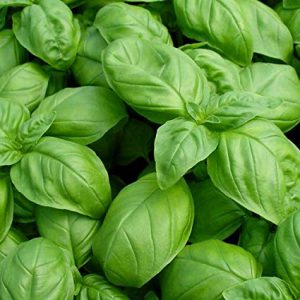
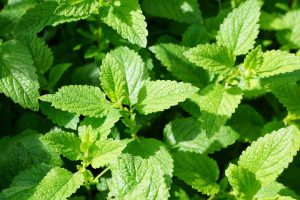
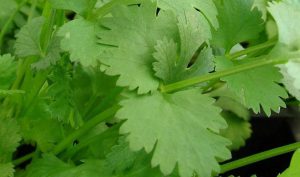
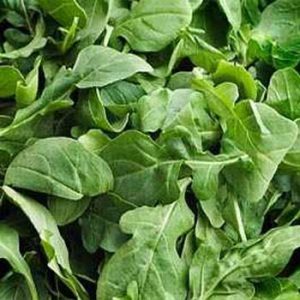
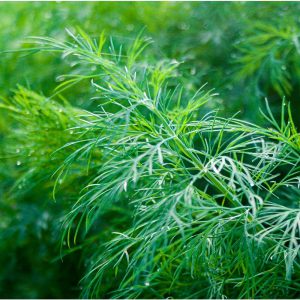
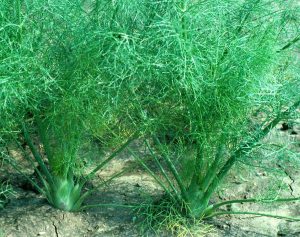
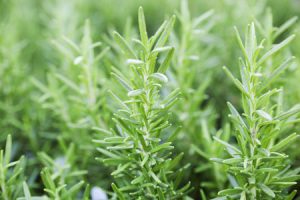
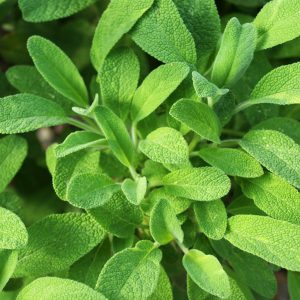
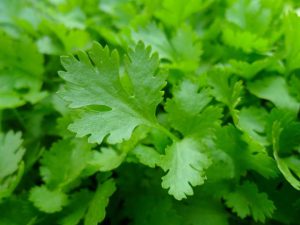








Leave a reply
You must be logged in to post a comment.